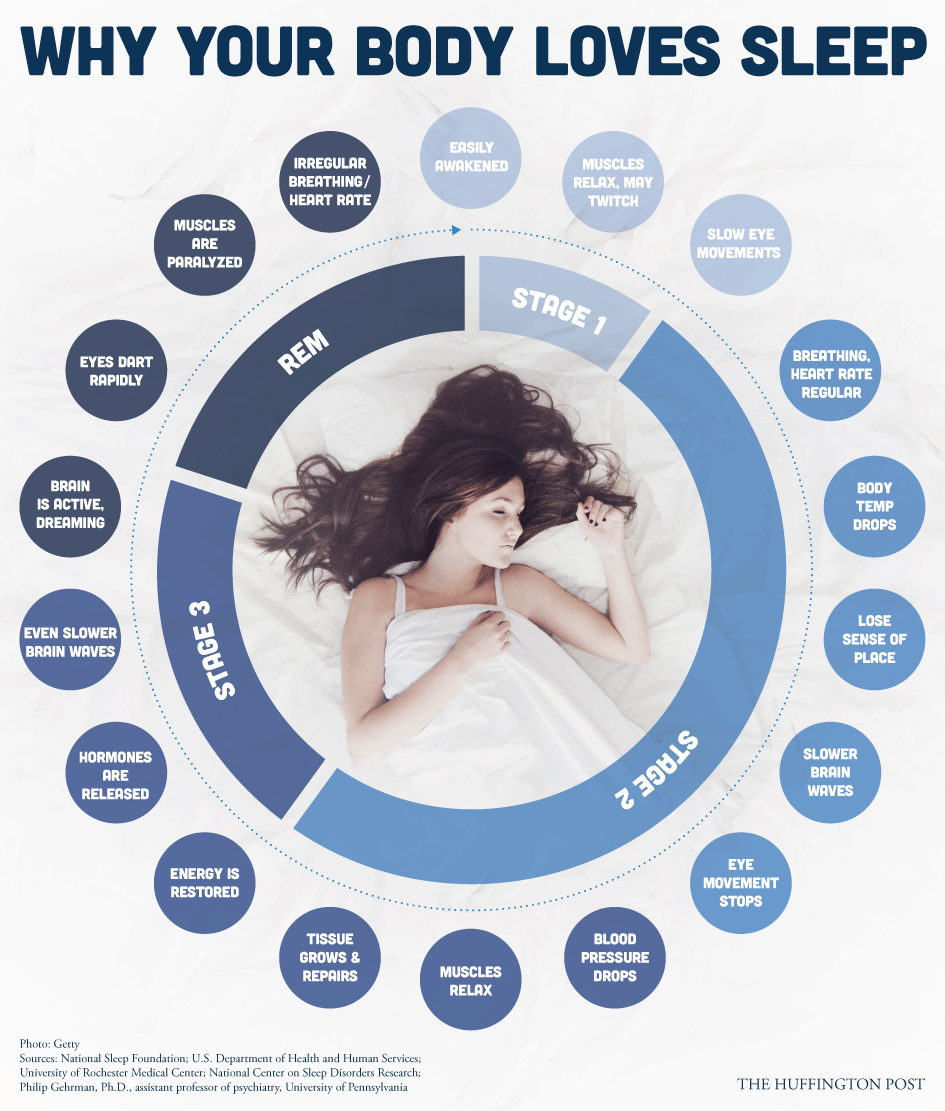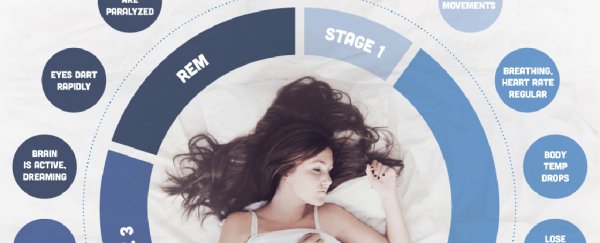In our increasingly busy lives, sleep can feel pretty unproductive. But just because you're not awake, doesn't mean stuff isn't happening.
To make you really appreciate all the complex things your body during those eight (or, more realistically, six) hours you're out each night, artist Jan Diehm from the Huffington Post has created this fascinating infographic.
You can see a much larger version of the image here, which breaks down each sleep stage by what happens during it and how much of your night it takes up on average.

And while it makes me appreciate my body and all of its involuntary behaviours, it also makes tired just by looking at it. Is 8:36 am too early for a power nap?
Laura Schocker over at Huffington Post has also given us a run-down of the different sleep stages in more detail. So what's going on?
Stage One is that time between wake and slumber when it's super easy for someone (or something) to wake you up. If you do wake up during stage on, you're going to feel like you haven't slept at all.
Stage Two is what Philip Gehrman, a psychiatry assistant professor from the University of Pennsylvania in the US, tells Schocker is the "average sleep", where we spend half of our night. As Schocker explains, during this stage:
"Brain waves are slow (with some rapid bursts) and your heart rate and blood pressure slow down and regulate. That means, for much of the night, your heart and vascular system are getting a much-needed rest, which might help to explain the many cardiovascular benefits of shuteye."
Stage Three is our deepest sleep, and it's when our brain waves transform into restorative, slow, high-amplitude waves. Pretty much most of our bodily functions slow down during this time and our bodies begin to repair. It's also the phase when people will sleep walk, talk, or eat, if they're so inclined.
REM sleep is where we experience vivid dreams. According to Gehrman, experts often call this the "paradoxical sleep" because the body is out for the count while the brain lights up like you're awake. And, yes, during this time you also experience rapid eye movement (which gives the stage its name). Your muscles are paralysed so you don't physically live out your dreams, and your breathing and heart rate can vary greatly.
Researchers also know that at some point during sleep, although they're not sure exactly when just yet, our bodies regulate the hormones that control how hungry we are, and our brains also lock in memories and learn the information we absorbed the day before.
So, while it's not always possible to get the seven to 10 hours of sleep a night recommended by some experts, at least you can now appreciate what happens when you do.
Source: The Huffington Post
